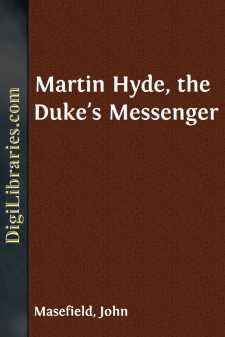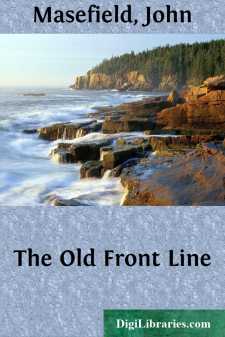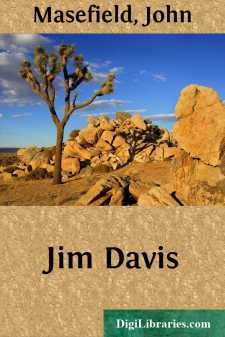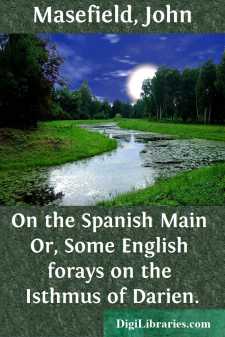Categories
- Antiques & Collectibles 13
- Architecture 36
- Art 48
- Bibles 22
- Biography & Autobiography 813
- Body, Mind & Spirit 142
- Business & Economics 28
- Children's Books 17
- Children's Fiction 14
- Computers 4
- Cooking 94
- Crafts & Hobbies 4
- Drama 346
- Education 46
- Family & Relationships 57
- Fiction 11829
- Games 19
- Gardening 17
- Health & Fitness 34
- History 1377
- House & Home 1
- Humor 147
- Juvenile Fiction 1873
- Juvenile Nonfiction 202
- Language Arts & Disciplines 88
- Law 16
- Literary Collections 686
- Literary Criticism 179
- Mathematics 13
- Medical 41
- Music 40
- Nature 179
- Non-Classifiable 1768
- Performing Arts 7
- Periodicals 1453
- Philosophy 64
- Photography 2
- Poetry 896
- Political Science 203
- Psychology 42
- Reference 154
- Religion 513
- Science 126
- Self-Help 84
- Social Science 81
- Sports & Recreation 34
- Study Aids 3
- Technology & Engineering 59
- Transportation 23
- Travel 463
- True Crime 29
John Masefield
John Masefield (1878–1967) was an English poet, novelist, and playwright renowned for his sea poems, including "Sea-Fever" and "Cargoes." He served as the Poet Laureate of the United Kingdom from 1930 until his death, contributing significantly to English literature with his evocative depictions of maritime life and adventures. Masefield's narrative poem "The Everlasting Mercy" is credited with revitalizing the popularity of narrative verse in the 20th century.
Author's Books:
Sort by:
by:
John Masefield
CHAPTER I. I LEAVE HOME I was born at Oulton, in Suffolk, in the year 1672. I know not the day of my birth, but it was in March, a day or two after the Dutch war began. I know this, because my father, who was the clergyman at Oulton, once told me that in the night of my birth a horseman called upon him, at the rectory, to ask the way to Lowestoft. He was riding from London with letters for the Admiral,...
more...
by:
John Masefield
CHAPTER I THE LIFE OF SHAKESPEARE Stratford-on-Avon is cleaner, better paved, and perhaps more populous than it was in Shakespeare's time. Several streets of mean red-brick houses have been built during the last half century. Hotels, tea rooms, refreshment rooms, and the shops where the tripper may buy things to remind him that he has been where greatness lived, give the place an air at once...
more...
by:
John Masefield
THE OLD FRONT LINE This description of the old front line, as it was when the Battle of the Somme began, may some day be of use. All wars end; even this war will some day end, and the ruins will be rebuilt and the field full of death will grow food, and all this frontier of trouble will be forgotten. When the trenches are filled in, and the plough has gone over them, the ground will not long keep the...
more...
by:
John Masefield
King Cole was King before the troubles came,The land was happy while he held the helm,The valley-land from Condicote to Thame,Watered by Thames and green with many an elm.For many a year he governed well his realm,So well-beloved, that, when at last he died,It was bereavement to the countryside. So good, so well-beloved, had he beenIn life, that when he reached the judging-place(There where the scales...
more...
by:
John Masefield
CHAPTER I MY FIRST JOURNEY I was born in the year 1800, in the town of Newnham-on-Severn, in Gloucestershire. I am sure of the year, because my father always told me that I was born at the end of the century, in the year that they began to build the great house. The house has been finished now these many years. The red-brick wall, which shuts its garden from the road (and the Severn), is all covered...
more...
by:
John Masefield
I first met John M. Synge at the room of a common friend, up two pairs of stairs, in an old house in Bloomsbury, on a Monday night of January, 1903. When I entered the room, he was sitting in a rush-bottomed chair, talking to a young man just down from Oxford. My host introduced me, with the remark that he wanted us to know each other. Synge stood up to shake hands with me. He was of the middle height,...
more...
by:
John Masefield
PART I RIGHT ROYAL An hour before the race they talked togetherA pair of lovers in the mild March weather,Charles Cothill and the golden lady, Em. Beautiful England's hands had fashioned them. He was from Sleins, that manor up the Lithe;Riding the Downs had made his body blithe;Stalwart he was, and springy, hardened, swift,Able for perfect speed with perfect thrift,Man to the core yet moving like...
more...
by:
John Masefield
CHAPTER I DRAKE'S VOYAGE TO THE WEST INDIES His quarrel with the Spaniards—His preliminary raids—His landfall—The secret harbour Francis Drake, the first Englishman to make himself "redoubtable to the Spaniards" on the Spanish Main, was born near Tavistock about the year 1545. He was sent to sea, as a lad, aboard a Channel coaster engaged in trade with the eastern counties, France...
more...









